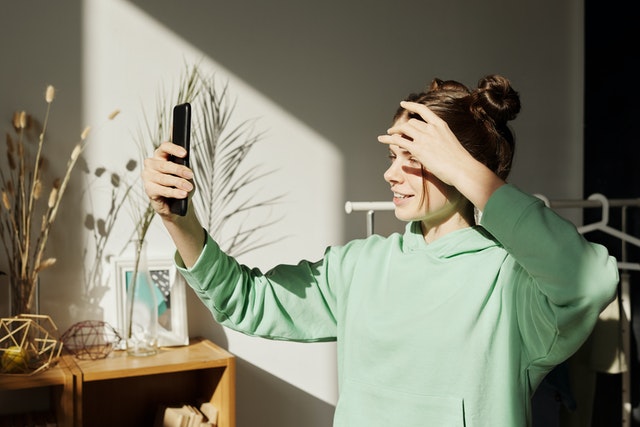A new study investigates whether taking a one-week break from social media platforms can improve well-being.
Social media use is quite common nowadays, as 4.65 billion people globally use at least one platform.1,2 Within society, it has revolutionized communication in a variety of ways.
Social media serves as an outlet to learn, share, and connect with others, regardless of where they are.
Social media plays a significant role in communication for many people, and it may be associated with a variety of effects on emotional and psychological well-being.3
Although social media can be very valuable in helping people stay connected, it can also provide a route for cyberbullying and other forms of problematic social media use.
A growing body of research suggests that certain patterns of social media use may be associated with symptoms of anxiety and depression in users.3,4,5
Some people may find that taking breaks from social media can be beneficial for their well-being; however, there is a current lack of research on the potential effects of social media breaks.6 To investigate this topic, researchers in the United Kingdom performed a study and published the results in Cyberpsychology, Behavior, and Social Networking.1
154 people with a mean age of 28.9 years participated in this study and filled out an initial survey to gather baseline information.
Out of this population, 62 percent were female, 64 percent were Caucasian, 47 percent were single, and most were either students or employed.
Thirty percent of this population scored a reading on the Patient Health Questionnaire-8 (PHQ-8) suggesting that they met diagnostic criteria for major depressive disorder, also known as depression.1,7
After gathering the information, 81 participants were randomly allocated to the intervention group and were asked to discontinue using social media sites for one week.1
These sites were Facebook, Twitter, Instagram, and TikTok, and the group received advice on how to help them stay away from these sites during the week. The other 73 participants served as a comparison group and were not asked to discontinue social media use throughout the week.
After the study period, participants provided evidence of their screen activity and completed a survey to describe their self-reported feelings about three different metrics: well-being, depression, and anxiety.
Well-being was measured through the Warwick-Edinburgh Mental Well-Being Scale (WEMWBS), feelings of depression were measured through the PHQ-8, and anxiety was measured through the General Anxiety Disorder Scale-7 (GAD-7). 7,8,9
Overall, 74 intervention participants and 66 comparison group participants completed the full study and both surveys, so this information was recorded and analyzed.1
According to the study results, the intervention group exhibited improvements in scores on all three metrics.1
Interestingly, some other studies did not find an association between limiting social media use and decreased anxiety; more research is needed to further investigate this relationship.1,10
However, these findings are consistent with previous studies suggesting an association between limiting social media with increased well-being and decreased feelings of depression.1,4,10
The results of this study suggest that taking a one-week break from social media may be associated with certain benefits for some individuals.1
More research is needed to solidify this, and more research is needed to determine if these findings would apply to a larger general population.
References
- Lambert, J., Barnstable, G., Minter, E., et al (2022, May 10). Taking a one-week break from social media improves well-being, depression, and anxiety: a randomized controlled trial. Cyberpsychology, Behavior, and Social Networking 25(5): doi: 10.1089/cyber.2021.0324
- Johnson, J. (2022, May 9). Worldwide digital population as of April 2022. Statista. Accessed 2022, May 22, from https://www.statista.com/statistics/617136/digital-population-worldwide/
- Karim, F., Oyewande, A.A., Abdalla, L.F., et al (2020, June). Social media use and its connection to mental health: a systematic review. Cureus 12(6): e8627.
- Vannucci, A., Flannery, K.M., McCauley Ohannessian, C. (2017, January 1). Social media use and anxiety in emerging adults. Journal of Affective Disorders. Doi: 10.1016/j.jad.2016.08.040
- Seabrook, E.M., Kern, N.L., Rickard, N.S. (2016, October). Social networking sites, depression, and anxiety: a systematic review. JMIR Ment Health 3(4): e50. Doi: 10.2196/mental.5842
- Fuller, K., Perina, K. (2019, July 1). Social Media Breaks and Why they are Necessary. Psychology Today. Accessed 2022, May 22, from https://www.psychologytoday.com/ca/blog/happiness-is-state-mind/201907/social-media-breaks-and-why-they-are-necessary
- Kroenke, K., Strine, T.W., Spitzer, R.L., et al (2009, April). The PHQ-8 as a measure of current depression in the general population. Comparative Study 114(1-3): 163-173. Doi: 10.1016/j.jad.2008.06.026
- Warwick Medical School (2021, November 11). The Warwick-Edinburgh Mental Wellbeing Scales – WEMWBS. University of Warwick: Coventry, U.K. Accessed 2022, May 24, from https://warwick.ac.uk/fac/sci/med/research/platform/wemwbs/
- Spitzer, R.L., Kroenke, K., Williams, J.B., et al (2006, May). A brief measure for assessing generalized anxiety disorder: the GAD-7. Arch Intern Med 166(10): 1092-1097. Doi: 10.1001/archinte.166.19.1092
- Hunt, M.G., Marx, R., Lipson, C., et al (2018, December). No more FOMO: limiting social media decreases loneliness and depression. Journal of Social and Clinical Psychology 37: 751-768. Doi: 10.1521/jscp.2018.37.10.751
Photo by Julia M Cameron from Pexels
Other topics that may be of interest:
- The effects of social media on mental health
- Social media and mental health in youth: A potential tool to support wellbeing
- Do the traits of compulsive social media use relate to risky drinking habits?
- Is there a link between social media use and poor decision-making?
- Can social media mediate the effects of chronic pain and depression?
- How are Social Media and Mental Health Related?



